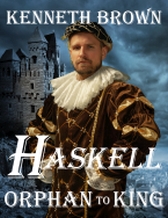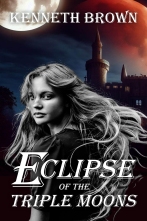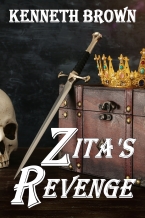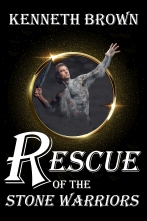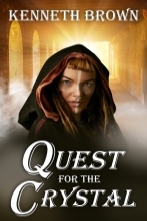Adgitize Press
Your Writing Effort is Front Loaded
By: Ken Brown
Published: 9/6/2018
Writing Rewards are Back Loaded
I read this quote the other day and it is so true. An author sits at his desk with a pen and paper or computer and begins to plot out a story. Maybe it began from a single image, event or person the author met that day. She puts a little thought into the story and decides whether it can be a short five hundred word story, a fifteen thousand word short story, a twenty-five thousand to forty-five thousand word novella or a full blown novel.
Then the novelist pecks away at the story a little everyday, finishing a chapter after a few days or a couple of weeks finishing a scene. Maybe as the story progresses the author sees the need for some research about history, clothing, time period tools, deep space concepts, math or people and customs and stops their writing for two, three or more months to immerse themselves in details important to the story. Then back to writing the story.
Interruptions will occur in the author's life including children issues, parent issues, relationship issues and job issues. Maybe the author stops writing for a month, a few months or years. Writing a novel isn't a fast path for most authors. Life gets in the way. An author that pumps out five hundred words a day, persistently, day by day will require two hundred days to finish a one hundred thousand words novel. Some novelists will write more words per day. Some will write less words per day and then some will be so inconsistent in their writing it will take years to reach that point.
Assuming the wordsmith is perfect then they could go right to publication. But no that isn't how it works. As writers we make mistakes and so we spend days or more likely weeks, poring over the manuscript looking for bad grammar and scenes where the protagonist walked in with a yellow dress and wore jeans and a tee shirt when the scene ended. We think we catch everything, the script flows from chapter to chapter and then we give it to our beta readers or trusted editors.
Boom, before you know it there are fifteen major problems with your story that you never noticed. A character just disappears or worse died in chapter twenty-eight only to be the person who saves the heroine in chapter sixty-two. You find out you're a horrible proofreader of your own work despite identifying every flawed sentence in all the books you've read since eighth grade. You read through the beta-reader's notes and try to stop crying. To make the changes they suggest will require weeks or maybe another year to finish and you promised your mother, father, lover, publisher or mentor that it was going to production in a month.
It might take a day, week or month but eventually the novelist begins the heartbreaking journey through the manuscript, wiping out entire chapters, killing characters that took up space but didn't add to the story and strenghtening the protagonist's character arc. Finished? Maybe, but more likely it needs another round of beta readers or it is time for the hard edit by a professional.
Three years later, the author, assuming they haven't given up, has a finished manuscript to be self-published or the publisher has approved it to be printed. Three years is a good timeframe for a first time author. It might be longer and this is only their first book. All that time and unless they are an exceptional writer, exceptional marketer or an expert in their field, the book sales will be modest at best. If they spent an hour a day for three years they will have put in over one thousand hours of work to create this book.
Self-published authors making money have more than one book in the marketplace. They have five books, fifteen books or thirty books. When will you be rewarded for your writing? If you did a regular job, the first week you barely have your computer set up, but at the end of the week you receive a paycheck. As a writer, a publisher may give you an advanced based on a book summary, but they probably want to see a manuscript if you're a first time author. A manuscript that took you over a thousand hours to write. But if you're a self-published author multiply that time by three or five before the money rolls in.
You put in the hours, but the rewards will occur on the backend of the process. Is it worth it? Do you enjoy writing? I love to write. I'm happiest when I'm sitting at my desk writing and living a story that I'm creating word by word. I started two books earlier in my career. Book one I wrote over forty-five thousand words and then stopped. I got busy with other things in my life and completely abandoned the manuscript. Book number two I started a few years later, but reached twenty thousand words before being interrupted and never returned to it.
Then I started book number three, Eclipse of the Triple Moons, by researching a new planet, Aloheno, that I created. I studied cultures currently living on earth and went back to what life was like in the eighteen hundreds, fourteen hundreds and such. I studied the movements of our moon and other known moons in the solar system. What's a three moon planet like? All that research took six months where I put thousands of words into a document, but no actual writing of the story took place. I started writing, gave it to my beta readers, removed four characters from the story, re-wrote ten chapters and removed as many or more, proofed it, created a cover, learned about self-publishing and pushed the manuscript to Smashwords, Amazon and Ingram Spark. Three years it took, I wrote one-hundred and ten thousand words which were edited down to ninety-three thousand words. I told my family it would take six months, but it took three years. How much have I earned? Ha, let's not talk about that. But I've started book two, Zita's Revenge, and have outlined a third book which will be a pre-quel to Eclipse.
I'm writing, having fun and who knows, maybe someday, a little money will flow my way.
Recent Blog Articles
Full Moon Snow Covered Backyard
My Current Projects October 2020
Make Your Settings Do Double Duty
Understanding the Scene Process
What is a Scene Purpose or Focus
The Reaction Scene or Sequel Scene
What are the Building Blocks of a Novel
Your Writing Effort is Front Loaded
What I Learned from Reading Lee Child Books
Six Reasons to Describe Your Characters
